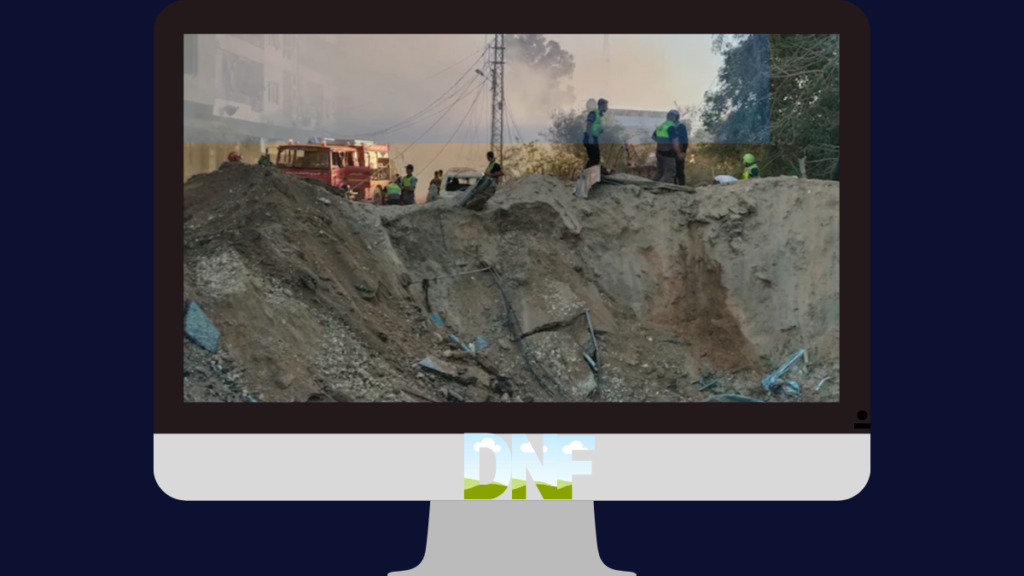When an Israeli strike killed him on Thursday and it was his turn to be rescued, there wasn’t much left. She had to use his fingers to recognise him.
Both Suzanne Karkaba and her father Ali worked as civil defence rescuers during the war in Lebanon, helping to recover the dead and save the injured.
There was not much left when he was killed in an Israeli strike on Thursday and it was his turn to be saved. She had to use his fingers to recognise him.
Karkaba then hurried back to the bombed civil defence centre to look beneath the debris for her fellow first responders.
Nearly 20 rescuers were still inside when Israel struck the centre, the primary civil defence facility in the eastern Baalbek region, according to Samir Chakia, a local official with the agency.
According to him, at least 14 civil defence employees perished.
“My dad and they were both sleeping here. He assisted others and retrieved bodies to give them back to their loved ones. With tears in her eyes, Karkaba told AFP, “But now it is my turn to pick up the pieces of my dad.”
This facility in Douris, on the outskirts of Baalbek city, was state-run and politically neutral, in contrast to many other first-responder facilities that had been targeted during the war.
Israel’s military did not immediately respond to a request for comment.
On Friday morning, dozens of rescuers and residents were still going through the debris at the centre. Two excavators removed broken concrete slabs, twisted metal bars, and red tiles.
Karkaba, who was at the scene in her civil defence uniform, claimed that ever since Israel increased its airstrikes on the eastern part of Lebanon in late September, she had been working nonstop.
With her braided hair blowing in the wind, Karkaba remarked, “I do not know who to grieve anymore, the centre’s chief, my father, or my friends of ten years.”
“I have lost a piece of my soul, and I do not have the heart to leave the centre, to leave the smell of my father.”
“We are now targets.”
Following nearly a year of cross-border gunfire, Israel intensified its airstrikes on September 23, primarily targeting Hezbollah strongholds in south Beirut and east and south Lebanon.
Israel dispatched ground forces to southern Lebanon a week later.
According to health ministry data released in late October, over 150 rescuers—the majority of whom were connected to Hezbollah and its allies—have been killed in more than a year of fighting.
Lebanese army troops were stationed close to the scene as rescuers in Douris continued to remove body parts from the debris on Friday morning, which was littered with dozens of paper documents.
Mahmoud Issa, a civil defence worker, was one of the people looking for friends in the debris.
“Does this type of attack on rescue crews and medical personnel get any worse? Among the first to… save lives is us. We are targets now, though,” he said.
Lebanon’s health ministry reported Thursday that Israeli strikes on the country’s east and south had killed over 40 people.
In less than two hours that day, the ministry reported two deadly Israeli raids on emergency facilities: one near Baalbek and another on the south that killed four paramedics with ties to Hezbollah.
“Put an end to these dangerous violations” was the ministry’s call to the international community.
According to the ministry, since the clashes started last year, more than 3,400 people have died in Lebanon, most of them since late September.

